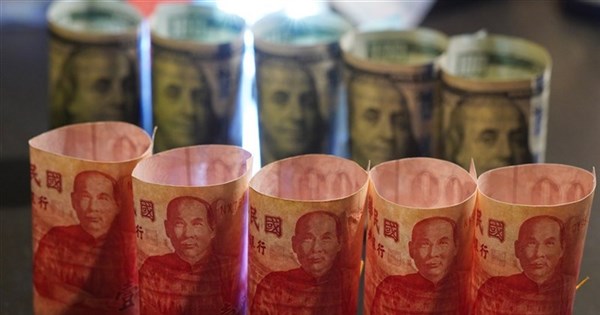
Washington, June 20 (CNA) The U.S. Department of the Treasury revealed in a report on Thursday that Taiwan will continue to be featured on its currency watchlist, but that no evidence of currency manipulation among its major trade partners had been identified.
According to the report, none of the U.S.’ major partners manipulated their currency to gain unfair trade advantages. However, it said it will monitor China, Japan, Malaysia, Singapore, Taiwan, Vietnam and Germany more closely regarding their currency and economic policies.
Japan, Taiwan, Vietnam and Germany have significant trade and current account surpluses, while Singapore met the criteria due to its persistent foreign exchange interventions and large current account surplus.
The report recommended Taiwan adopt “a careful mix of policies” to reduce its vulnerability to external shocks. It also suggested Taiwan address structural issues and monitor non-bank financial sector risks, including foreign exchange risks.
In addition, it advised Taiwan to limit foreign exchange interventions and align the value of its currency with economic fundamentals.
The semiannual report assesses the policies of the U.S.’ top 20 trading partners, which account for 78 percent of its trade in goods and services.
The criteria for currency manipulation include a trade surplus with the U.S. of at least US$15 billion, a current account surplus of at least 3 percent of GDP, and persistent foreign exchange market interventions for at least eight months with net purchases of at least 2 percent of GDP. Countries meeting two of these criteria are placed on the watchlist.
In response, Taiwan’s Central Bank said in a statement that the exchange rate of the New Taiwan dollar is principally determined by market supply and demand.
In case of excessive exchange rate fluctuations that could be detrimental to financial stability, the bank will move to maintain market order, it said.
The bank also noted that the U.S. recommendations are consistent with its operational goals and exchange rate policies.
Regarding the situation, Taiwan Institute of Economic Research director Wu Meng-tao (吳孟道) told CNA it was “unsurprising” that Taiwan continued to be featured on the list.
He noted that Taiwan’s long-term economic and trade development means it likely meets two of the criteria, but that the impact is minimal and there is no need for excessive concern.
Meanwhile, the U.S. report reiterated its call for China to “improve transparency” in its exchange rate policies, noting a lack of disclosure and transparency in its foreign exchange interventions.
Treasury Secretary Janet Yellen affirmed the Treasury’s commitment to promoting policies for stronger, balanced global growth. She also highlighted the importance of closer cooperation with trading partners on currency matters to support American workers.
